Lea Bertucci's new album, The Oracle, departs from the instrumental music she has produced previously, as her voice is now a prominent addition to the album. When I listen to The Oracle, much like her other albums, I find myself wanting to sit with the soundscapes. Like on "Oracular Chasm," with the subtle flutes in the background, one playing a melody, and something like the sound of rain or a waterfall, lightly dripping onto bare rock—I want to be still, lie on the couch, and look up at the ceiling. Or in "The Place Where the Sky Was Born," it's easy to feel as if were slipping in and out of conscious thought as the vocals slip in and out of the song, distorted, bent, almost hiding, slipping away from certainty—airs of wispy statics, strings sounds holding a taught sound never letting go of the space it occupies. The sound is neither freeing nor arresting; rather, it's contemplative, a space and time to exist in a moment.
There is an unease in the use of voice on the record, as there is never a moment where it is entirely clear what the voice is saying or wanting to say. There are moments when listening that my eyebrows furrow—like in "The Two Way Mirror," there are screeching sounds, like a bad screen door that almost sounds human, and when the metal or bells toddle over that sound—or when I just really want to understand the whispers, or what is being said as they continually crawl intricately in and out of the track. And I sit there, and I sit in my feelings of curiosity and of a desire to understand what I'm feeling. I think Bertucci taps into an affect that piques curiosity, and in The Oracle, one that agitates complacency while at the same time, creating music that feels good to experience. And what is being said when this is the most Bertucci has ever used her voice, while many of the words are fleeting and difficult to hold onto?
I have some ideas about language and words that might relate to this album. Words fall out of mouths, and meanings slip through fingers; sometimes, it can feel like trying to grasp tightly to something that is supposedly created and deployed as an act of transparency. There are moments when the language of words or actions holds meaning with clarity. As time goes by, as we become more steeped in digital literacy, and as language seems to be becoming more twisted or manipulated, and into a place of negotiating how to exist fully as a person outside of a screen, clarity feels more like a luxury item. A luxury item that you have to shop for, like going to 5th Avenue in New York, or Rodeo Drive in Los Angeles, and looking at the most expensive and glorious item, while not being in a position to purchase that thing for one reason or another.
On the other hand, everything we say or do has a meaning or purpose behind it, whether it's intentional, unintentional, conscious, or subconscious; our brains are taking action. Then we're all trying to translate all the language of what is happening, what is being said, or what isn't being said. It's chaotic and distressing, and sometimes feels like a void of nothingness.
The definition of ‘oracle’ in the Encyclopædia Britannica includes a person (such as a priestess) through whom a god was believed to speak, the place (such as a shrine) where people went to ask questions of an oracle, and an answer or message given by an oracle. Bertucci is familiar with mythos and oracles, as well as historical contexts through objects and stories, in a way that dictates a powerful vision. So I'm keen to wonder, or to ask, is this contemplative, wondrous soundscape derivative of a message given to an artist by some mythological being? Or, is Bertucci secretly, perhaps unknowingly, this oracle? Or, does this soundscape bellow something urgent as a reflection of ourselves, right now, in this moment or era of language?
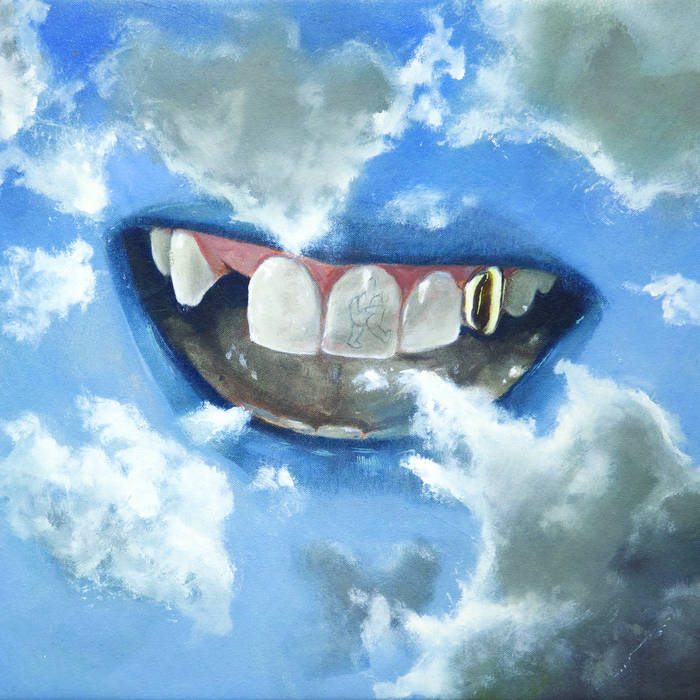
Jonah Evans: How are you today? What have you been doing?
Lea Bertucci: Today, I am going to clean my house a little bit. And then, I plan to work on this piece of music that I've been working on for almost two and a half years. That's a piece for medieval flutes and eight-channel sound. It's written for my friend Norbert Rodenkirchen, who's a master early musician, and we're going to premiere this piece in November in Germany. I'm really excited for that. I'm just deep in getting this piece ready. Super excited about it.
Jonah: So, he's a master in early medieval stuff.
Lea: Yeah. He's part of the early music community. Renaissance, Baroque, medieval, and even earlier. He has a collection of flutes made from wood or bone from different eras. We're using five of them in this piece. Some of the flutes he has are exact replicas of flutes found in Neolithic caves. The earliest complete musical instrument ever found is a flute from a cave in Slovenia, made from the bone of a bear.
The flute is interesting because you see it across different cultures in various forms. It's a very archetypal instrument, and it goes way, way back—deep humanity kind of stuff. So that's a lot of what I've been thinking about. The piece is titled, "The Days Pass Quickly Immersed in the Shadow of Eternity."
Jonah: Wow. A beautiful title. What's the part you're playing in this composition?
Lea: The way this piece works is that a while ago, I got together with Norbert, and he brought his amazing array of flutes. It's a collection that he's amassed over many decades. We sampled each note on each of them—both sustained pitches and improvisational fragments, such as melodies inspired by the different eras of music that would've been played on all these flutes. I'm going to deploy the samples in this eight-channel array while he plays live. So it's gonna be like a crazy, flute choir kind of situation.
Jonah: That's really awesome. When is that happening?
Lea: That's November 20th at the ZKM Karlsruhe, Germany. I'm trying to bring the piece to the U.S. next year. We're going through the horrible process of getting Norbert an artist visa.
Jonah: Yeah. Our country's not so friendly with visas these days.
Lea: It's been that way for a long time, but I think it's worse now, like everything. It has always been expensive for European or any non-U.S. artists to come here. But we're going through with it. I think we'll be doing a bit of a tour next year with this piece.
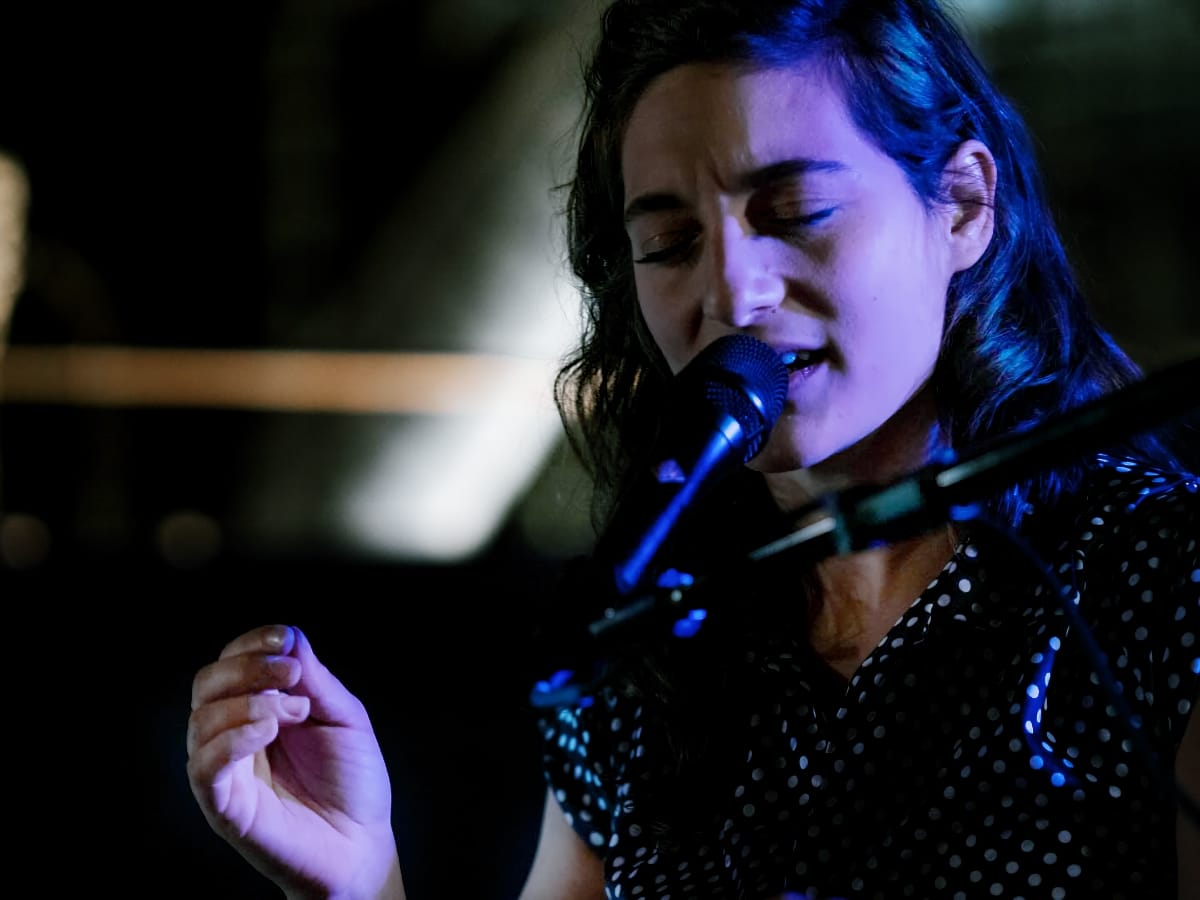
Jonah: What's that sensation like, creating those fragments? Is it like you're sitting with the music, excited to go through every note?
Lea: Yeah. It can be a little tedious at times. But I actually found it really fun because the way I would work with him was that I would propose an improvisational scenario to him, which he would then riff on. Like, we had the sheep bone flute out, and I said, "Okay, so I want you to improvise as though you are like a Viking who's been at sea for the last six months, and you are on the boat, and you just caught the first glimpse of the fjords. And you also are feeling the effects of the Amanita muscaria mushroom that you just nibbled on." And then he would riff on that for a few minutes. I would take fragments of that improvisation and then weave that into the piece. It’s really fun because I get to learn about all these different eras of music, including Renaissance, Baroque, medieval, and earlier periods, as well as folk.
Jonah: How does research function along those lines when collaborating?
Lea: This piece is definitely heavy on the research. I wrote about 30 pages of academic text about it. There's a lot of material that goes into this, including listening to a lot of early music. I've been into that for many years as a fan. So, a lot of listening, binging, reading texts of Hildegard. It enriches the whole project, and it's easy to forget that music is so old. It's such a central part of the human experience. And also, the way recording has completely changed the way we listen. This project contemplates all those themes.
Jonah: And what about research for your current project?
Lea: I wanted to make a pretty voice-centric record. I've been thinking about this for a number of years, how to develop my own vocal style. I had been doing this for a while with other vocalists, and eventually with my own voice, such as processing it through a reel-to-reel tape machine. I discovered a process that I call a stream of unconsciousness, where I improvise with language and tap into areas of my unconscious. I’ll describe my dreams, or I'll read certain texts right before I do an improvisation.
Obviously, I'm reading the news, right? So that stuff shows up. I was also reading classical Greek mythology. This idea of an oracle is interesting to me, of different ways of soothsaying or divination. I think we're in an era where we're all trying to see clearly, and it's difficult to parse information and deal with communication. We have forgotten how to talk to each other. And so, obscuring words in the way that I do on the record is part of that, trying to figure out how to communicate.
Jonah: It's interesting because one thing I think about is "Oracular Chasm." That song feels like just sitting in a moment and waiting. I don't know why, but that's how it felt. What are your sentiments towards that piece?
Lea: "Oracular Chasm" is a recording that I made in the cement mine that is in my hometown. I was playing the Aris flute, a traditional Swedish sheepherder's flute. The title comes from the Oracle of Delphi. That temple sits on a fault line that has vents from deep inside the earth. Some archeologists believe that these vents would have noxious gases of ethylene that would come up, and the priestesses would inhale the ethylene, which would make them go into an ecstatic trance and say all sorts of crazy shit.
So the “Oracular Chasm” is the idea of peering down into this chasm as a way of seeing. I wanted that to be the access point into the record. So the idea is that we start by going into the oracular chasm, and then the rest of the record is what's down there.
Jonah: That's awesome. What has been your meditation on language and communication? There's the news . . .
Lea: Yeah, parsing information is the most valuable skill to have right now in our society, to make sense of the slop that is coming at us all the time.
One of the things about our dictator, who uses language in an interesting but shitty way, is that he'll always say things that are on the edge of illegal. He knows how to phrase things so that he can always deny his true intentions. It's like dog whistle kind of stuff, right? So, he's a master manipulator of language. At the same time, we as a society have completely lost the ability to speak with civility to people we disagree with. It's a real problem. And then, the AI language model is putting people out of work and changing the way that we exist. So I think that language is a really rich site of exploration right now.
Jonah: Do you think it shows up in your album in an intentional or unintentional way?
Lea: I think what I'm doing on this album is I'm speaking words, but you can't always understand what they are. So, like maybe a word or a phrase might emerge somewhere, but a lot of it is that people will hear what they want to hear. They might grasp onto a syllable and cognitively fill in the rest. It's playing in that space of ambiguity, and to ask people to interrogate a little bit harder what they are hearing and what that might mean.
Jonah: What compelled you to do this now?
Lea: I just think it's one of the central struggles of our time. It's one of the macro struggles, like yes, we're struggling against people getting kidnapped and our economy getting all crazy and the general enshitification of the internet and platforms, right? There's all that stuff. I believe that there are larger macro issues, and language and communication are among them.
That's also part of like why I self-released the record, because I wanted to do this on a timeline that was my own. If I had waited to find a label for it, it would've been like two years before it came out. I feel that the situation is changing so much, and I think people need music that will make them think, question their assumptions, and provide some degree of catharsis, if possible.
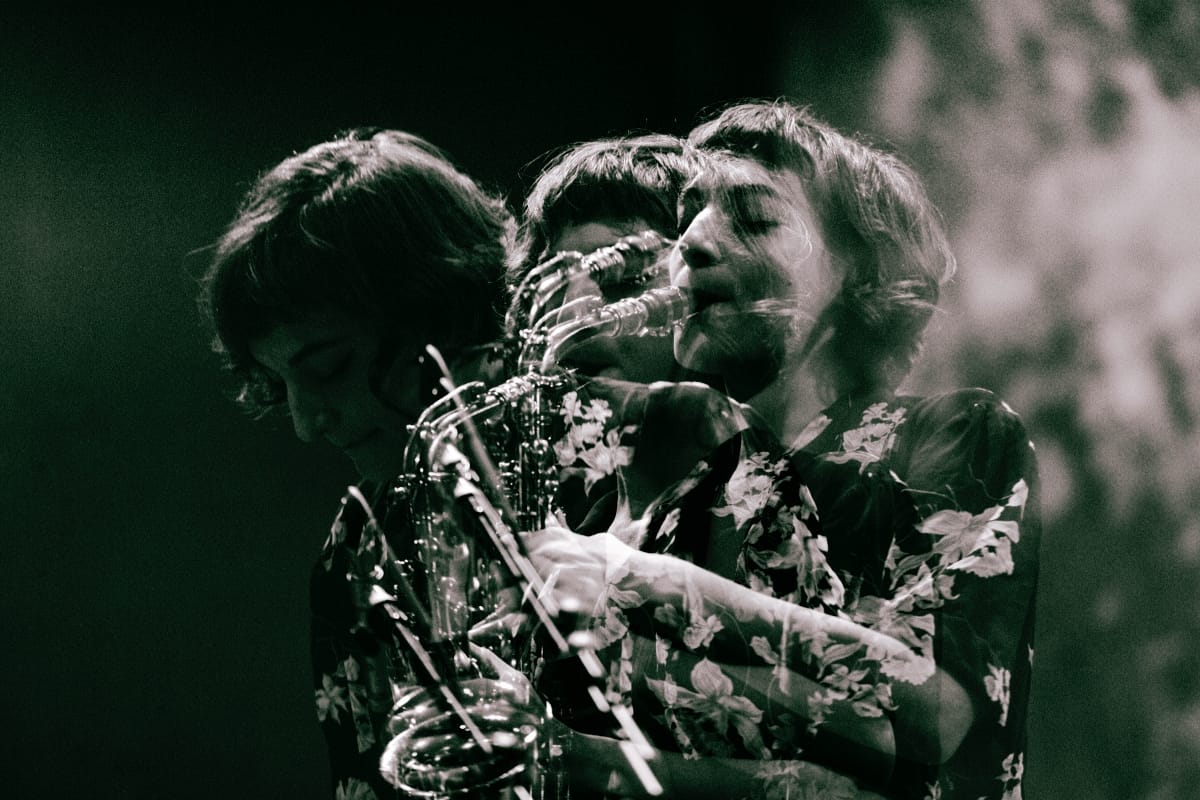
Jonah: I remember I was looking at Spotify, and it was interesting how you had a banner showing how much Spotify pays, along with the text "Go to my Bandcamp."
Lea: It feels like an uphill battle, but other people are getting hip to the fact that Spotify is not only bad for artists, but it's bad. The people behind it are not great, and they're not even music people. The founders of Spotify were advertising executives. So yeah, I don't know. I'm winging it here. I don't really know how to deal with any of this stuff, but I try to do little subversive things that maybe help,
Jonah: Even though you're winging it, it's pretty inspiring to see how you operate your ethics.
Lea: Thanks. I definitely care. This is why it takes me a long time to release stuff. This album took about three years to make. I always want to push and challenge myself, and challenge the people who are listening to my music. Intentionality is everything because I don't feel like I just put out whatever; it's important to me that what I put out is really thought through and well considered. And that's out of respect to the listener.
Jonah: So, what were some of the prominent modes of development for this album?
Lea: The album started in 2022. I was at a residency in California, and they gave me an old gymnasium space that was beautiful acoustically. There was this half-broken electric organ in the space. So, I did a lot of experiments where I would tape down keys and make these kinds of cord clusters. I had a binaural microphone, and I would move the binaural head around the space as the organ was droning. A lot of the backbone, sustained sounds in the album, come from that time period.
I didn't really know how I would use those recordings for a long time. I tried to fit them in with other things, but it just wasn't really gelling. And then last summer, I started being able to put all the pieces together. I'm always recording things and amassing sounds that I'm not sure exactly how they fit together. It's a long process of fermentation, allowing the material to sit for a while before I really know how it fits together.
Jonah: It seems like you've done a lot of residencies. How have those residencies impacted your learning and growing process as an artist?
Lea: A residency can be really different depending on the place, but I've had great experiences. When I'm out of my normal rhythms and a little bit de-familiarized, it allows me to pay attention to subtle details around me a bit more. I'm more interested in the world because it's so unfamiliar. Also, having dedicated time and space just to do my work is really amazing. One great thing about many of the residencies I've done is that they're interdisciplinary. So I'll be there with writers, visual artists, filmmakers, dancers, and theater artists. It's nice to talk to people who don't have the same set of references as I do. Interfacing with people from different artistic backgrounds can be great.
Jonah: I saw that you often play live to the sound of certain rooms and spaces. Will you perform The Oracle live, and are you envisioning a space where you would want to play?
Lea: Yeah. I will play the album live. I have different approaches to that. The longer the soundcheck I get, the better the set is gonna sound. You really have to take good care in soundcheck. I have some techniques that I use for the first track, "Oracular Chasm." Since it was recorded in a cement mine, I try to match the ambient sound with a reverb plugin to capture the acoustic qualities of that cave. So I'm trying to replicate that space in the live set, which never quite works, but I keep trying.
Jonah: In an older interview, you mentioned something about processing collective trauma. How did you think about that with this album?
Lea: I was at the residency in California called the Headland Center for the Arts. I was having a rough time, emotionally, really depressed and unmoored. I was in the process of leaving New York City, trying to figure out where to live and how to exist, basically. That place was healing in a lot of ways. So, what I hope is that that experience kind of seeps into the record in certain ways, but I don't want it to be an album that is just pure comfort or escapism. I want it to be something that provides a little more depth. That said, the last track, a song called "In this Time," is more about a direct reaction to the contemporary reality of people being kidnapped in the United States right now.
Jonah: I noticed how drum-heavy that one is. It's a direct sound versus a sound where you're not quite sure what's making it.
Lea: The drums on that track are actually recordings of the concert of a taiko drumming class that I took. Taiko is a style of Japanese folk drumming. It's this huge, physically demanding type of music. It was basically like taking a workout class. I had to really get in shape for that. But yeah, it has an intense, thunderous quality to it. And I would say also a bit ominous in the context that I'm using it.
Jonah: I would say it's not an album you can just totally relax to. It's like a two-way mirror has these warped words and discernible sounds, and then there's this weird, thick, dragging sound, along with some periodic screeching, which is a little eerie. So, it's a little discomforting, but in a good way.
Lea: Yeah, those are sounds from the New York City ferry, actually, those field recordings.
Jonah: Oh, really?
Lea: Yeah. Which sounds amazing. If you're ever in New York, take a ferry ride, and you'll hear it.
Check out more like this:
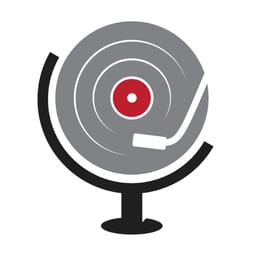 The TonearmCarolyn Zaldivar Snow
The TonearmCarolyn Zaldivar Snow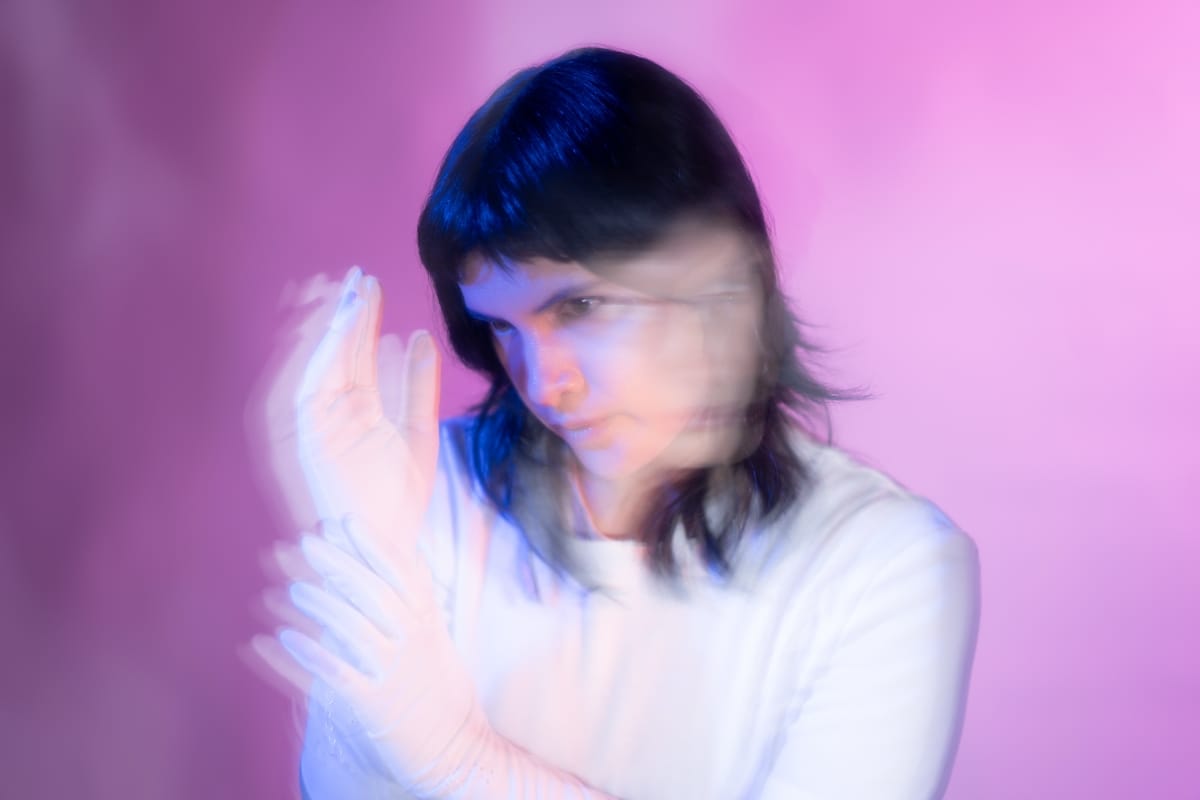
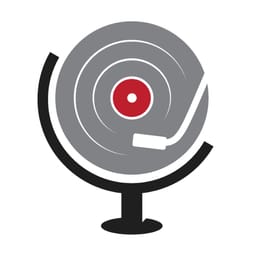 The TonearmJonah Evans
The TonearmJonah Evans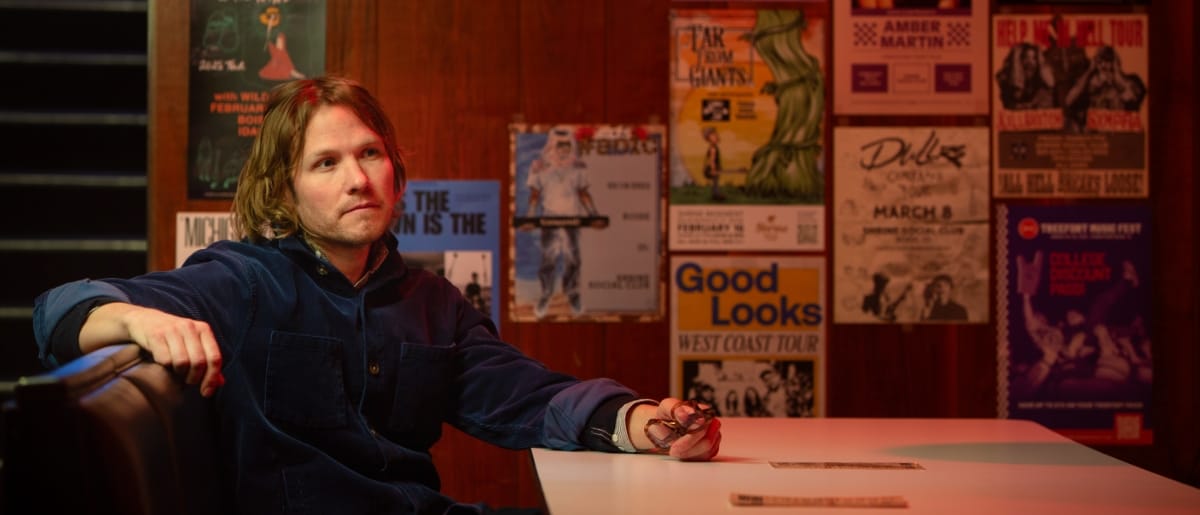


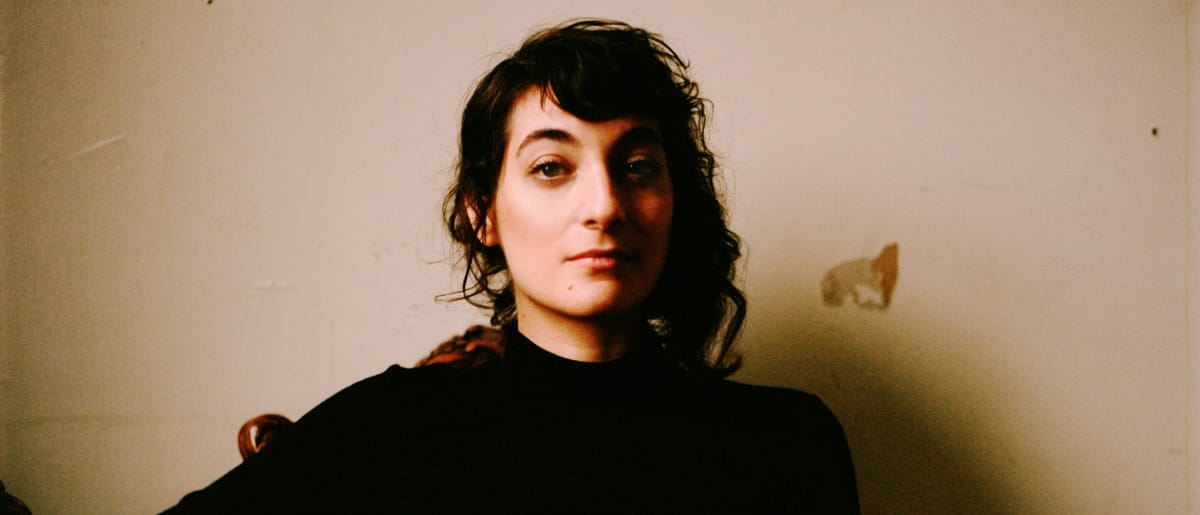
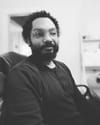
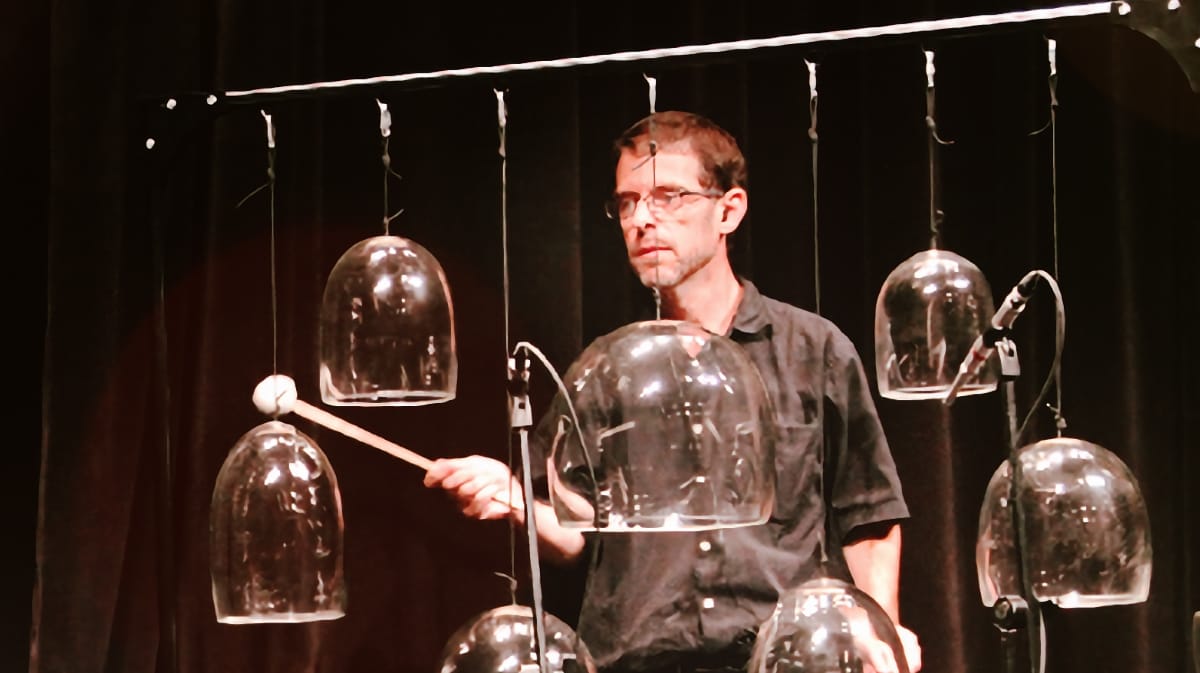
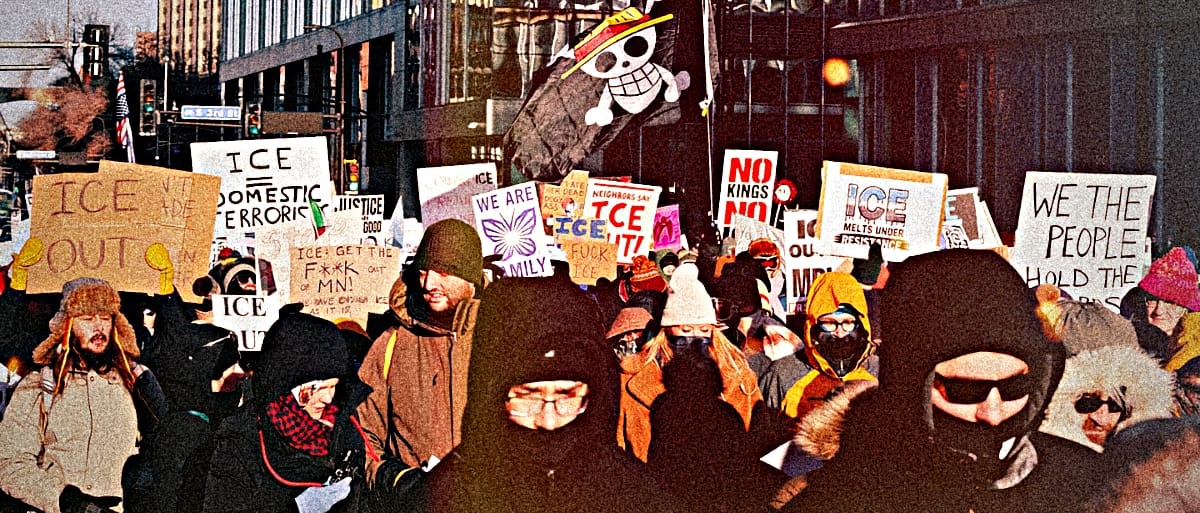
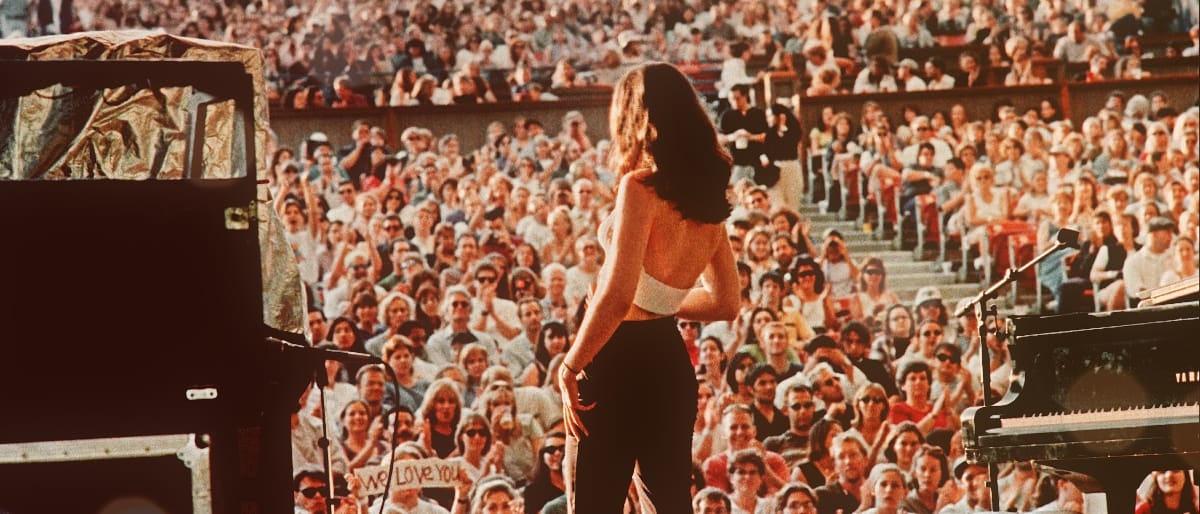
Comments